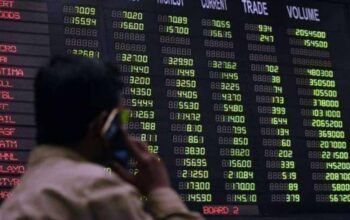By Staff Reporter
ISLAMABAD: Prime Minister Shehbaz Sharif on Tuesday issued a sweeping invitation to global investors, including Saudi Arabia, China, the US, and the European Union, to tap into the country’s $6 trillion mineral reserves, as Islamabad races to unlock an underdeveloped sector critical to stabilising its debt-strapped economy.
Addressing the Pakistan Minerals Investment Forum, Sharif vowed to transform the country’s underdeveloped mining industry — which contributes just 3.2% to GDP and 0.1% to global exports — into a cornerstone of growth.
Pakistan is home to one of the world’s largest porphyry copper-gold mineral zones, while the Reko Diq mine in southwestern Balochistan has an estimated 5.9 billion tons of ore. Barrick Gold, which owns a 50 percent stake in the Reko Diq mines, considers them one of the world’s largest underdeveloped copper-gold areas, and their development is expected to have a significant impact on Pakistan’s struggling economy.
Sharif urged foreign governments and private firms to forge “win-win partnerships” through direct investments rather than loans, aiming to pivot the nation away from its reliance on 25 International Monetary Fund (IMF) bailouts. The most recent $7 billion IMF package was approved in 2024.
“Here we have our brothers from Saudi Arabia, from Qatar, from UAE and other countries, and of course, ambassadors from Europe and North America and Far East, China,” Sharif said in his address at the summit. “I think this is an opportunity which we must convert into reality, not through borrowing more loans, but coming up with feasibilities and solid evidence of partnership which will result into a win-win partnership.”
“Today there is a dearth of rare earth material around the globe and I would like to invite, on my behalf, on behalf of my government and provincial governments, all potential investors in Pakistan and abroad … We can certainly convert this into an opportunity like never before.”
Pakistan is also expected to unveil a new National Minerals Harmonization Framework 2025 at the minerals summit, with the Sharif highlighting future policy changes, including that the country would not allow raw materials to be shipped but investors would need to install industries in the country to export finished products.
“From today onwards, it has to be a very integrated policy where you mine raw materials, have a downstream industry, convert them into finished and semi-finished goods, and then export them out.”
Security Guarantees
With foreign investors wary of Balochistan’s insurgency risks, Army Chief General Asim Munir vowed “proactive security measures” for mining projects, declaring economic security a national priority.
“Pakistan’s army will ensure a robust security framework, (and) proactive measures to protect the interests and trust of partners and investors,” General Munir said. “You can count on Pakistan as a reliable partner.”
Ethnic Baloch separatists, who have long been running an insurgency in the region, oppose any foreign investment which they say is an attempt by Islamabad to solidify its hold through external players on their regional resources.
They have been fighting for decades for a greater share of local resources, but some of their armed groups now say they will not settle for anything less than a separate homeland.
“We welcome international organizations to seek investment opportunities and partnership with us in the development of wider resources,” Munir said. “We need global partners — not just for extraction, but *value-added industries.”
Critical Minerals
The US, represented by senior official Eric Meyer, signaled strategic interest in Pakistan’s critical minerals, vital for technology sectors.
“I commend Pakistan for convening the Minerals Investment Forum here in Islamabad and for taking steps to ensure a level playing field for investors,” Meyer said, applauding Islamabad’s investor reforms. “Critical minerals are the raw materials for our most important technologies, and President [Donald] Trump has underscored the importance of securing America’s minerals future.”
He also highlighted recent successes in economic partnership between the two countries.
“We recently celebrated the return of US soybean exports to Pakistan. Four vessels carrying more than 260,000 tons of soybeans have arrived over the last few weeks,” Meyer said. “It’s a win-win for US exporters and for Pakistanis alike, and we look forward to more such wins in the future.”
The US’s goods trade with Pakistan was at an estimated $7.3 billion in 2024, according to the US Trade Representative, a federal agency responsible for developing and promoting foreign trade policies.
US goods exports to Pakistan in 2024 were $2.1 billion, up 4.4 percent ($90.9 million) from 2023, while US goods imports from Pakistan totaled $5.1 billion in 2024, up 4.9 percent ($238.7 million) from 2023.
“What makes me most optimistic about the US-Pakistan partnership is that our cooperation is based on the close and enduring ties between our peoples.”
Copyright © 2021 Independent Pakistan | All rights reserved




